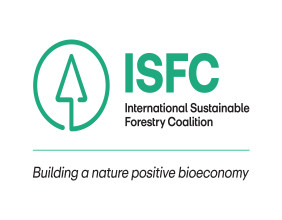As sustainability issues take center stage in corporate governance, could your company be at risk of inadvertently misleading investors or consumers? Regulators are increasing the pressure on companies to disclose climate-related risks and opportunities, while many key stakeholders are prioritizing sustainability. This means companies are incentivized to make ESG-related claims to stay competitive. Yet business leaders are increasingly recognizing that operating without considering, disclosing or being asked about their impacts is nearly impossible.
As companies respond to demands for both mandatory and voluntary ESG disclosures, the risk of greenwashing grows. Regulators are stepping in to address false or exaggerated claims that misdirect investment and customer spending. Investors and customers are also initiating litigation to hold companies accountable for greenwashing. The reputational, regulatory and litigation risks of greenwashing are higher today than ever before, posing significant challenges for legal and risk management professionals.
Why evaluate greenwashing risks?
Greenwashing refers to practices that deceive or mislead stakeholders into believing a company’s goods or services are more sustainable than they truly are. It can take many different forms, from intentionally deceptive statements to unintentional omissions, due to a lack of understanding of ESG risks.
Recent studies highlight how prevalent greenwashing has become. For example:
- A Hong Kong Monetary Authority study revealed that one-third of corporate green bond issuers globally had worse environmental performance after their initial green bond issuance.
- An International Consumer Protection Enforcement Network report found that 40% of online green claims could be misleading consumers.
- A market study conducted by the National University of Singapore Business School and funded by the Competition and Consumer Commission of Singapore concluded 51% of green claims were unsubstantiated.
Regulatory scrutiny on greenwashing is growing across jurisdictions with key recent enforcement actions including:
- Australia (2024): In a case filed by the Australian Securities and Investments Commission (ASIC), the Australian Competition and Consumer Commission took action against Clorox Australia Pty Ltd for false claims about recycled ‘ocean plastic’, while the Australian Federal Court fined Mercer Superannuation A$11.3 million for misleading ESG claims. ASIC has also brought a civil action against Vanguard Investments Australia Ltd for incomplete information and inaccurate ESG statements on its ESG exclusionary screens for the Vanguard index fund.
- Italy (2024): The Italian Competition Authority investigated the Armani and Dior Groups for misleading claims related to ethical labor practices and legal compliance within their supply chain.
- Singapore (2023): The Advertising Standards Authority of Singapore issued a notice to PRISM+ for unsubstantiated energy efficiency claims regarding air conditioners.
- UK (2023): Following a Competition Markets Authority investigation into environmental claims in the fashion industry, ASOS, Boohoo and Asda committed to making their claims clearer.
- Canada (2022): The Canadian Competition Bureau fined Keurig CA$4 million for misleading claims about the recyclability of its single-use plastic coffee pod.
How legal and risk management professionals can help to manage the greenwashing risks
Legal and risk management professionals play a crucial role as gatekeepers for their organizations, tasked with identifying and avoiding current and future legal and regulatory risks. When it comes to greenwashing, their role is to ensure that the company’s ESG claims are accurate, verifiable and well-substantiated. This requires implementing robust ESG due diligence processes and working closely with sustainability teams and external service providers.
Legal and risk management professionals are already responsible for ensuring companies do not engage in misleading statements under securities, misrepresentation, directors’ liabilities, consumer protection and advertising laws. Greenwashing now adds another layer to this responsibility, requiring special attention to environmental and sustainability claims. Key challenges include:
- Recognizing when a claim is misleading: Assessing whether claims are based on adequate and accurate information and determining how they will be perceived by investors, consumers and other stakeholders.
- Ensuring the accuracy of underlying data: Legal teams must ensure that the data supporting ESG claims is reliable and scientifically sound.
- Monitoring the value chain: Companies must be accountable not only for their own ESG practices but also for those of their suppliers and partners. Legal professionals should work with procurement teams to audit the entire value chain and ensure that third-party practices align with stated sustainability commitments.
Best practices for avoiding greenwashing
Legal and risk management professionals can mitigate greenwashing risks by following these key principles:
1. Make accurate and truthful claims
- Recognize all sustainability claims: Any statement suggesting that a product or service has a positive or neutral impact on the environment or local community, or is less damaging than another, constitutes a sustainability claim. This can include the overall impression created by the text and visual elements.
- Verify claims with scientific evidence: Ensure that every claim is supported by credible data. Claims should present the full picture, including any qualifications. For instance, if a product feature is industry-standard, presenting it as a unique sustainability benefit may be misleading.
2. Explain conditions or qualifications
- Disclose caveats prominently: If certain conditions be met for a claim to hold true (e.g., a product is only recyclable in specific facilities), these qualifications should be clearly disclosed alongside the main claim.
- Ensure verifiable future goals: If a claim is related to future sustainable objectives, ensure the company has a clear, actionable strategy to achieve these goals, along with reasonable grounds for making the claim.
3. Use clear and understandable language.
- Simplify complex terms: Assume that the target audience does not have specialized scientific or industry knowledge. Define terms clearly and avoid jargon.
- Explain scientific language: When using technical terms, explain their implications. This ensures consumers fully understand the claimed environmental or sustainable benefits and limitations.
4. Accountability in the value chain
- Close cross-department collaboration: Legal teams, procurement, operations and sustainability teams need to coordinate to ensure ESG compliance throughout the entire value chain.
- Establish processes for auditing suppliers’ practices: Companies need to consider clauses in contracts that hold suppliers accountable for meeting environmental standards. By embedding sustainability into the supply chain, companies can reduce their exposure to greenwashing risks.
- Use credible ESG reporting frameworks and standards: Ensure that internationally adopted sustainability reporting frameworks are applied by the organization, such as the GRI Standards, to increase the reliability and comparability of disclosed information.
For legal and risk management professionals, greenwashing presents new challenges but also an opportunity to lead on ESG governance. To mitigate these risks, the first step is to conduct a greenwashing risk assessment within the company, revisiting all ESG claims made across product lines and services. Collaborating closely with sustainability and marketing teams to align claims with the most reliable data, with robust disclosure practices and ongoing monitoring, can prevent potential greenwashing from slipping through the cracks.
ABOUT THE AUTHORS
Elsa Chen is Co-Head of Allen & Gledhill’s ESG & Public Policy Practice and Regional Co-Head of its Competition & Foreign Investment Review Practice. Elsa’s ESG and public policy experience ranges from assisting clients to map out ESG trends and implications, policy drafting, advocacy, and assisting on legislative changes. She also assists clients in navigating greenwashing and ESG due diligence risks, and the antitrust aspects of ESG. Elsa regularly assists clients in complex antitrust and foreign investments review matters in Singapore and beyond, including merger control, global cartel and abuse of dominance investigations.
Allinnettes (Ally) Adigue has led the Global Reporting Initiative (GRI) in the ASEAN region since 2018. Based in Singapore, she oversees the team responsible for engagement and collaboration with Southeast Asian stakeholders and companies to create a conducive environment for sustainable business and sustainability reporting practices. Prior to GRI, Ally worked in both the public and private sectors in Australia, Philippines and Singapore. She has a PhD in Public Policy from the Crawford School of Public Policy (Australian National University). She also holds two Masters: in Development Studies (Erasmus University, The Netherlands); and Public Administration (Lee Kuan Yew School of Public Policy, Singapore).






